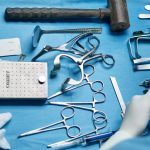
When our four-legged friends undergo surgery, it is not just their immediate physical recovery we need to consider but also their nutritional needs, which can drastically change during the healing process.
Similar to humans, pets require a carefully monitored diet adapted to their current health and fitness level to promote optimal recovery. Here’s how you can provide the best support for your pet’s post-surgery dietary needs.
Dietary Changes After Pet Surgery
Nutritional Support for Healing
The postoperative period is critical for your pet as their body needs to repair tissues and regain strength. What they eat directly impacts their recovery speed and effectiveness.
Initially, veterinarians often recommend a highly digestible diet that’s easy on your pet’s system and enriched with proteins and nutrients to aid in tissue repair. Increased omega-3 fatty acids, for instance, can help manage inflammation, while antioxidants may help combat oxidative stress associated with surgery.
Caloric Intake Adjustments
After surgery, many pets are less active during the recovery phase, which can affect their caloric needs. An overweight pet might benefit from a lower-calorie diet to prevent additional weight gain while immobilized. Conversely, if your pet is underweight or struggling to maintain their current weight, a calorie-dense diet may be more appropriate. It’s essential to strike a balance to support healing without creating new health issues.
Dealing with Changes in Appetite
It’s not uncommon for pets to experience changes in appetite after surgery. Your pet might be less inclined to eat due to discomfort, medication side effects, or reduced physical activity. Encouraging them to eat may involve offering smaller, more frequent meals or warming their food to enhance its aroma and palatability.
One valuable resource for tailoring your pet’s post-surgery diet is a trusted dog nutritionist. These experts can suggest specific foods, portions, and feeding schedules to meet your pet’s individual needs and even work in tandem with your veterinarian to manage any underlying health conditions impacted by surgery.
The Importance of Hydration
Keeping your pet well-hydrated is always important, but even more so post-surgery. Water is essential for all body functions, including healing. Ensure fresh water is always available, and consider adding wet food to your pet’s diet to increase fluid intake if they need to drink more.
Specialized Diets for Recovery
In some cases, your veterinarian may advise a temporary therapeutic diet formulated for recovery. These diets are designed to provide complete nutrition tailored to support healing and may sometimes require a veterinary prescription.
Supplements and Medication Interactions
Vitamin and mineral supplements might be recommended to support your pet’s recovery. However, it’s crucial to consult your vet before starting any new supplement, as some can interact with medications your pet may be taking.
Vet Surgical Services and Recovery
In the context of vet surgical services, the role of an experienced dog surgeon is paramount. These highly skilled professionals understand the intricate details of canine anatomy and surgical procedures, ensuring your beloved pet is in the safest hands.
Their expertise extends beyond the operating table, often advising on the most suitable post-operative care, including those essential dietary adjustments your pet will need for a speedy recovery.
Monitoring Your Pet’s Recovery at Home
Observe and Respond to Dietary Responses
After bringing your pet home from surgery, it’s important to pay close attention to how they respond to their new diet. Watch for any signs of gastrointestinal upset and report them to your vet. Changes should be made gradually and with professional guidance.
Regular Check-ins with Your Veterinarian
Regular follow-up appointments with your veterinarian are crucial to track your pet’s recovery progress. These visits are the perfect opportunity to discuss any concerns about your pet’s diet and make adjustments as necessary.
Vet Care for Puppies and Kittens Post-surgery
For the little ones, post-surgery care must be adjusted for their developing bodies. The puppy veterinarian in Oklahoma City or similar locales will offer specialized guidance to ensure the dietary needs of puppies and kittens are met as they recover from procedures. This often involves a highly nutritious, growth-supportive diet that fosters proper wound healing and development.
Changing Your Pet’s Diet After Surgery
When it comes to transitioning your pet to their new post-surgery diet, here are some key points:
-
Start with easily digestible, bland food and gradually reintroduce their regular diet.
-
Adjust portion sizes in accordance with their activity levels to avoid weight gain or loss.
-
Split meals into smaller, more frequent servings if your pet is reluctant to eat.
-
Stay vigilant for any signs of dietary intolerance or lack of appetite.
-
Ensure fresh water is available at all times to encourage sufficient hydration.
Feeding Tips for Your Healing Companion
-
Always warm up the food to room temperature; this can be more appealing for pets.
-
If they’re resistant to eating, try hand-feeding to encourage them.
-
Avoid offering human food or table scraps, which can disrupt the healing process.
-
Be patient and give lots of gentle encouragement and affection during meal times.
Wrapping Up
Allowing your pet to heal from surgery requires patience, love, and the right dietary adjustments. By understanding these changes and collaborating with veterinary professionals, you’re ensured to support your furry friend’s journey to a full and swift recovery. With optimal nutrition, regular monitoring, and professional advice, your companion will be back on their paws in no time.














































